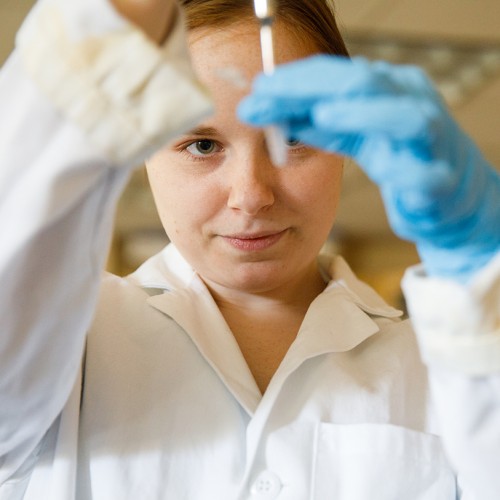
Putting Career First: A New Vision for Bay Path’s Sullivan Life and Career Planning Center
“Career planning needs to occur early and often,” says Gretchen Heaton, Bay Path’s associate dean of Career and Leadership Development. “We can’t look at the career center as a ‘place’ where our seniors come for help with resumes and job searches during their last semester. The cost of college and the challenges that come with navigating the twists and turns of a modern career require a high level of attention—and intention—so, our career center will be an adviser, an expert, and a network that’s always available to all students, and alums, on and off campus.”
 Heaton is at the forefront of Bay Path’s recently announced overhaul of its Sullivan Career and Life Planning Center (SCLP). In its new form, the Center and the programs, resources, and advising it provides will be embedded in a student’s academic planning. Support from the Center will begin before an undergraduate even selects her first course and continue as a trusted contact beyond graduation and throughout an alumni’s entire career, whether they’ve obtained a bachelor’s, master’s, or doctorate degree, online or on campus.
Heaton is at the forefront of Bay Path’s recently announced overhaul of its Sullivan Career and Life Planning Center (SCLP). In its new form, the Center and the programs, resources, and advising it provides will be embedded in a student’s academic planning. Support from the Center will begin before an undergraduate even selects her first course and continue as a trusted contact beyond graduation and throughout an alumni’s entire career, whether they’ve obtained a bachelor’s, master’s, or doctorate degree, online or on campus.
According to the National Center for Education Statistics, thirty percent of undergraduate students change majors at least once, and the College Completion Project found that just nineteen percent of students complete their bachelor’s degree within four years. In today’s high-cost, high-stakes higher education landscape, unfinished degrees overly burden those students for whom a degree can be the most life-changing.
To ensure Bay Path undergraduates not only complete their degrees but complete them without needing to invest more time and money into their college plans, the University has adopted an emerging academic model called Guided Pathways and placed career services at the foundation of it.
Guided Pathways is a movement that’s been adopted by many community colleges, with careful consideration around allowing students to explore programs, consider possible careers, and develop a broad academic strategy that leads to a defined career goal. Instead of selecting one area of study, students choose from clusters of majors—such as business, social sciences, or health—and design curriculum maps that offer several direct paths toward a completed degree, without extending the timeline beyond four years.
Once a student completes her degree, she’ll enter a modern workforce where, according to the Bureau of Labor Statistics, the average worker switches jobs approximately twelve times and has a median employment tenure of about four years. That reality, underscored by ongoing technological disruption and the regular introduction of new skills and competencies, means that consistent education will be part of a long-term career strategy.
The terms “coskilling,” “reskilling,” and “upskilling” all speak to ways employees will have to maintain their technological aptitudes, and to the solutions that colleges and workplaces will have to develop together, in the form of certificate programs, industry-recognized credentialing, and expanded internships, work experiences, and project-based learning opportunities.
One of the more positive outcomes of the pandemic was the widespread acceptance of virtual work and the discovery of innovative solutions that enable employees to contribute, despite being based remotely. Forbes magazine found that twenty percent of internships listed on Indeed.com in March 2021 mentioned remote work, compared to an average of five percent of postings listed in March 2019. “Even before the pandemic, students from our cyber programs were successfully working in virtual internships,” notes Heaton. “We have high hopes that the new normal will allow more students to work with more companies and organizations who’ve seen that virtual work projects can be done from anywhere.”
In addition to counseling students on career and academic planning, the SCLP will be actively forging relationships with those companies and organizations in order to create more real-life learning opportunities for students, while connecting them to professional organizations and mentors who can provide essential guidance and support.
“Mentors are absolutely critical resources for first-generation students who may not have access to the sorts of networks—the parents, relatives, and friends—that give other students a head start on their careers,” explains Heaton. “Connections and mentors help level the playing field.”
“Imagine having an alum in California mentor a student in New Jersey, while that student virtually assists that alum on a work project. Today’s students are tomorrow’s alumni, and we need strong links to build this chain.”
Follow the Sullivan Career and Life Planning Center on social media to keep up with Bay Path career news, networking opportunities and seminars and events.
